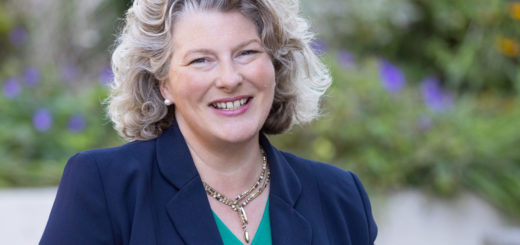An exclusive interview with Ms Coreen Hester, Head of The American School
On 1 September 2016, Mums In The Wood met with the American School in London’s Head of School, Coreen R. Hester and toured the campus with the Associate Dean of Admissions, Caroline Lesando. Mrs. Hester is charming, warm and approachable, with an innate understanding of the psyche of a child and the educational needs of the individual. She comes across as an experienced, hands-on head of school, who recognises that education is as much about inculcating a love of learning as it is about achieving potential and helping a child to develop a growth mindset. In her 10 years as Head of School, Mrs. Hester has made giant strides in promoting academic excellence at ASL, using the school’s mission statement to support the very best in American pedagogy. “It’s all about student learning,” she opines. “At ASL, our mission is to develop the intellect and character of each student by providing an outstanding American education with a global perspective.”
Ms Coreen Hester
Coreen R. Hester became the seventh head of the American School in London in 2007. Prior to joining ASL, she was Head of School at The Hamlin School in San Francisco and Assistant Head at The Branson School in Ross, California. Mrs. Hester served as High School Principal at ASL from 1995 to 1997. She has degrees in English literature and education from Stanford University.EndFragment Mrs. Hester will retire at the end this academic year, her tenth as Head of ASL.
The ASL Board of Trustees is delighted to announce the appointment of Ms. Robin S. Appleby as the eighth Head of School of the American School in London, commencing 1 July 2017.
Ms. Robin Appleby
Robin holds a BA in English from Dartmouth College, and an MA in English literature from the State University of New York at Buffalo. In addition, she received an MS in organisation development and analysis from Case Western Reserve University, with a focus on leadership development, change management and international applications of organisational development practice. Robin is married to John Leavey, who is English and Dutch, and they are the parents of Eden, who will start at ASL next fall in Grade 6.
Robin is an accomplished educational leader with a wealth of experience in both US independent and international schools. Her experience, knowledge and deep commitment to education are well suited to ASL’s mission, core values, and vision for excellence. ASL has been the fortunate beneficiary of transformative leadership under Coreen R. Hester and Robin possesses the inspiration, intellect, ability to engage and dynamism necessary to build on this legacy of extraordinary achievement. Robin is a passionate promoter of global citizenship and a values-based education, which, when combined with her personal commitment to student-centered learning, ensures ASL will continue to thrive and excel with the highest aspirations.
Question: What are the main differences between American schooling system and the British schooling system?
Answer:
We are experts on the American system and can talk about what we do, but we leave it to prospective parents to make the comparison with other school systems.
At ASL, the key tenets of an American education include skill development in the following areas: problem solving, collaboration, risk taking, critical thinking, and a performance-based view of understanding. Our program places more emphasis on continuous assessment (small group work, daily participation, project-based learning, oral presentations, daily homework assignments, and tests/quizzes) and focuses less on high-stakes, year-end examinations. We believe that learning needs to be “messy,” and we don’t want our students so concerned on finding the “right” answer that they are afraid to take risks and make mistakes. We believe that each student will mature at his/her own developmentally appropriate moment; we are less focused on a belief that students must be ready to peak at arbitrary age designations.
At ASL, students maintain a broad, liberal arts approach to their studies right up through the end of high school and will not be asked to specialise earlier.
Question: What would be most challenging for children who start in one system and then switch to another at a later date?
Answer:
Most students transition beautifully, but there can be challenges at different ages. For younger children, we know students need time to develop their comfort with a different kind of student-teacher relationship and new expectations for independence and self-advocacy. Since assessment is ongoing, children are given specific and immediate feedback throughout the day so they can adjust, try something in a different way, edit and improve. When children come to us from a different system, they tend to be more focused on summative assessments, and we take special care to explain that everything they do in school counts, from their efforts and mistakes to their great triumphs.
As children get older, the curricula begin to diverge more significantly creating different kinds of challenges. For example, math topics between different systems may be taught in different order. This transition requires our teachers to be attentive to any new topics that must be addressed.
To help families, we host events specifically for those in transition. Teachers and administrators are made aware of the type of feeder school a student has attended to enable them to look for tell-tale signs these challenges can present.
Question: What about the American school would benefit a non-American family resident in the UK?
Answer:
We would argue, everything! ASL offers a vibrant, diverse student body, and international faculty. Our students represent more than 60 nationalities and our classes are taught from a global perspective. The term “American” education refers to our pedagogical methods, not the content of the subjects taught.
Many of our non-American families are interested in sending their children on to higher education in the United States. Eight-five percent of our graduates matriculate to US colleges and universities, and we offer a comprehensive college counselling program that walks students through the college search and application process. A rising number of students (15-20%) apply to the UK college system, and we are well prepared to support those applications as well.
Question: What is the admissions policy of the school? Does the school have strict selection criteria and entry points, or is there leeway for children to join mid year?
Answer:
ASL welcomes approximately 300 new students each year across every grade level. There are no entry points and we are happy to take students mid-year as space allows.
The school’s formal admissions policy states:
“The American School in London provides a rigorous American curriculum to students from a wide range of countries who are interested in pursuing an outstanding education with a global perspective.
“We admit qualified applicants who will thrive and contribute positively to the life of the School, and we make every effort to offer admission to qualified siblings. To be successful at ASL, students must be comfortable in an academically challenging environment and exhibit personal integrity and community responsibility. We are committed to creating a diverse school community that appreciates and respects differences.”
Question: How diverse is the student body? Are the majority of children mainly from the US or do you have a mix of international students?
Answer:
Currently, ASL students hail from 69 countries and speak more than 50 languages. More than 40 percent of our students hold a non-US passport. Nearly 20 percent of our student body has previously studied at other international schools around the world.
Question: How transient is the student body considering that many parents who come over from the States are in the UK for a limited number of years, and what effect does it have on class sizes, teaching methods and students?
Answer:
This is a question we are asked a lot and families are always surprised to hear that our attrition is quite low. Our average turnover is about 15 percent of the students each year. As a school, we plan for this turnover and ensure that children get to know all of the students in their grade, not just their classroom, so everyone has lots of friends from year to year. There is a happy side effect to the attrition: most children can empathise with what it feels like to be new and are comfortable reaching out to new classmates. Our average length of stay is four years, and for students remaining beyond two years that average then jumps to six years. It’s also important to note that our teachers’ average tenure is 9 years. Compared to many other international schools, the ASL school community is relatively stable.
Question: What is the school’s policy on students with special needs and children who are significantly ahead of their peer group or lagging behind?
Answer:
Our program is academic but our work as teachers is to ensure that every student experiences success and is appropriately challenged. Our admissions team carefully screens each candidate so that we know ahead of time that a student will thrive amidst the challenges of our program. Our teaching style ensures that each child is receiving an education appropriate to his/her style and individual strengths. For children with mild to moderate learning difficulties, ASL offers a Specific Learning Difficulties (SLD) program. There is a limited number of spaces in each grade. We also offer additional support for EAL (English as an Additional Language) students.
Question: How involved is the parent body at the school? What opportunities do families new to the area and the school have, outside of school hours, for their children to better integrate into school life in a new country, if any?
Answer:
Our school is a community hub, and we are happy to be a place where families, especially those new to the area, can connect. We have an active Parent Community Association (PCA) that hosts orientation events, neighbourhood coffees, galas and family-friendly parties. A branch of the PCA, the International Community Committee, is dedicated to celebrating our multicultural student and parent body and helps connect families with shared cultures and languages.
The school runs a Speakers Series and Parent Education Series, which involve specialist speakers and experts on topics of parenting and education. An adult learning program, Master Classes, help parents get to know each other while discussing topics such as literature and history, as well as local and topical themes, e.g., the UK referendum and the US election.
Like all independent schools, we rely on parent volunteers and there are many ways, big and small, to get involved in school life. Each classroom has room parents, and each grade has representatives. There are enough opportunities both during and after school hours for everyone to get involved.
Outside of school, we organise community service days for our families to volunteer at local London charities, such as The Winch in Swiss Cottage and the Adventure Playground in St. John’s Wood.
Question: How involved is the school in the local community?
Answer:
Our mission is to develop the intellect and character of each student. An important part of character development is instilling in students their responsibility to the greater community and to use their education and talents in service to others. From kindergarten through the high school, all students are involved in ways to engage with the community. The school’s community partnerships program establishes connections with local organisations and provides opportunities for students to volunteer. The program uses a service-learning approach that extends beyond the simple model of community service of collecting coats and serving food. The curriculum aims to develop in children the skills to assess a need, to work with experts and the people experiencing the need, to implement and sustain the model. There are dozens of opportunities for students to participate after school as well as weekend community partnership days for families to get involved.
Conclusions
ASL is an amazing school and not just because of its enviable premises and facilities. Founded in 1951, the diverse community of students creates an exciting mix of personalities, attitudes and cultures.
Class sizes average 15–20, with children working in small groups or one on one with a teacher. The School offers an American, college-preparatory education, and students graduate with an American high school diploma, going on to the best universities in the UK and the US. Lessons tend to be project based, and students are encouraged to think independently and to become productive, confident lifelong learners. Innovation and individualism are celebrated, just as outstanding academic success is applauded. The students take full advantage of London as their classroom, participating actively in its vibrant historical, artistic and cultural venues and students are introduced to experiences that will create the international citizens of tomorrow.
The list of clubs on offer is both varied and long. Students have a huge variety of activities to choose from, some included in the fees and others extra.The staff consists of highly trained teachers, 32 of whom are specialised in spotting and supporting children with mild special needs in addition and the school also provides an enormous amount of support on site. Most of the staff members are highly trained and qualified to a higher degree level, the admissions staff have child psychologists among them all of which contributes hugely to the academic success the school has at placing it’s students both in the best of British and American Universities.
Means tested bursaries are on offer for children who meet the admissions criteria but whose parents cannot afford the fees and for children whose parents have suddenly suffered a change of circumstance.
All in all, a wonderful school providing children with the very best of opportunities, headed and run by excellent, highly trained staff members. A school where critical thinking, compassion and a creative mindset are built into the program of the School which means that academic prowess is always positioned alongside other important qualities and students are guided and encouraged to reach their full potential and to strive for excellence in all aspects of their lives, not just examinations and coursework.












